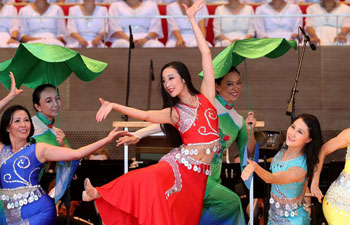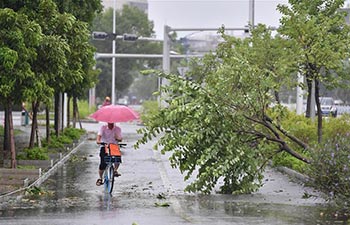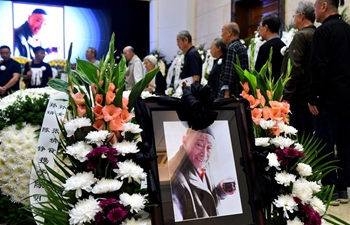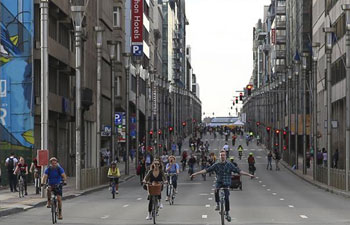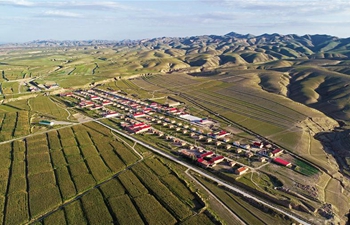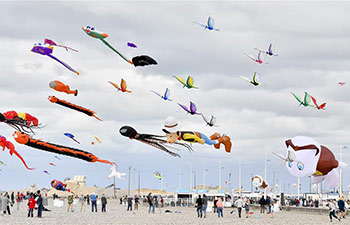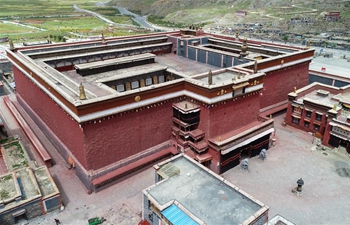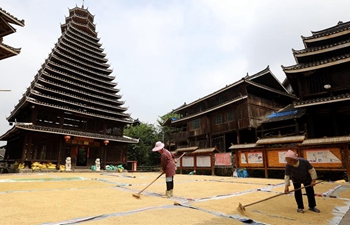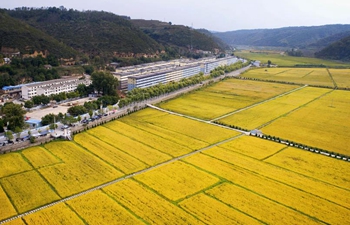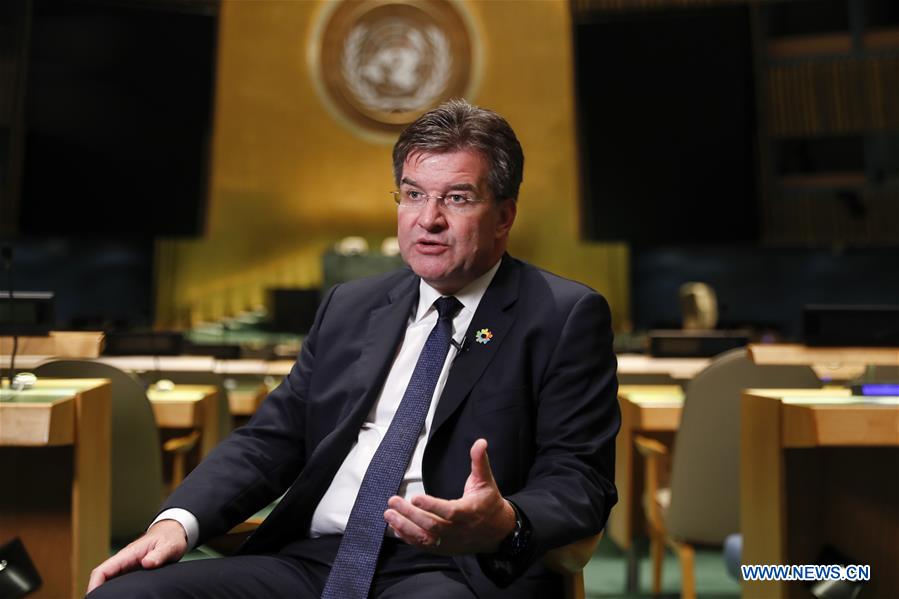
Miroslav Lajcak, President of the 72nd session of the United Nations General Assembly, speaks during an interview with Xinhua at the UN headquarters in New York, Sept. 11, 2018. Outgoing UN General Assembly President Miroslav Lajcak has said that he is "cautiously optimistic" about world peace but cautioned against undermining multilateralism. (Xinhua/Li Muzi)
UNITED NATIONS, Sept. 17 (Xinhua) -- Outgoing UN General Assembly President Miroslav Lajcak on Monday outlined six major trends he identified during his one-year tenure on his last day in office, highlighting sustaining peace, combat against climate change and UN reform, among other things.
At the 117th or last meeting of the 72nd session of the assembly, the UNGA chief identified the turning towards "preventive action" in sustaining peace as the first trend he highlighted in his closing speech.
"We had excellent peacekeepers and mediators. The problem was that, by the time they got there, it was often too late," he said. "Essentially, we were trying to keep peace, when there was no peace left to keep. And we were leaving too soon - before the roots of conflict had been pulled fully from the ground."
The UNGA chief takes pride in the fact that the 72nd session brought the two-and-half-year-old idea of sustaining peace to the attention of world leaders by organizing the first ever High-Level Meeting on Peacebuilding and Sustaining Peace, where "preventive action" was given thorough discussion.
Secondly, Lajcak talked about the world's focus on climate change, saying he has seen more and more member states reflecting the issue in their speeches.
Giving an example, he said that "at last year's General Debate, climate change was the most frequently referenced item on the agenda. In fact, 85 percent of heads of state and delegations spoke about it," adding that "I predict we will see similar trends next week."
Thirdly, he pointed to the growing ability of the General Assembly to adapt to major global shifts.
Singling out the "migration crisis," which emerged around 2015 and 2016, he said this past summer saw the agreement on a milestone outcome - the Global Compact for Safe Orderly and Regular Migration.
The world's first global compact for migration is set to be formally adopted in Morocco in December.
"The General Assembly cannot get left behind. As the world's most representative body, it must stay ahead of the curve. Or at least be quick to follow it," he said.
He noted the organ's ability to adapt to global shifts is particularly important, "as issues like Artificial Intelligence, data protection and the future of work take up more space in our daily lives."
As to the fourth trend, Lajcak focused on reform, touching upon the General Assembly's endeavors as well as UN Secretary-General Antonio Guterres' initiatives and the Security Council's discussion on this regard.
During the 72nd session, the secretary-general released reform proposals in three areas: peace and security, management, and development. The General Assembly has, since then, decided to advance all three.
He took the election of his successor for example, where unlike before, the process happened through a system of interactive dialogues with member states.
As to the fifth and sixth trends, the UNGA warned that "the space for dialogue is closing" and "multilateralism is under threat."
However, he expressed the hope that dialogue will eventually prevail. "Though our current political climate has trained us into our monologues, our instincts for dialogue run deeper."
On multilateralism, he warned that "we are seeing a return to the exclusive clubs of the past" and that "history tells us that this is not the way forward."
He said that "there is still time to counter this trend" and that "multilateralism is the only way."
Before Lajcak's closing speech, UN Secretary-General Antonio Guterres congratulated him and the member states on the completion of "a very productive session" of the General Assembly.
Guterres said that in addressing issues ranging from climate change and intolerance to disarmament and economic and social development, the assembly's invaluable role was again demonstrated as a forum for addressing "the full spectrum of the world's concerns and aspirations."
Also, the UN chief expressed anticipation to working with President-elect Maria Fernanda Espinosa Garces, who took oath at the meeting as the 73rd president of the General Assembly.
In a brief ceremony that concluded the meeting, the veteran Ecuadorian diplomat took over the gavel from Lajcak symbolizing the handover of power.
As the fourth woman and the first from Latin America and the Caribbean to serve in this capacity, Espinosa Garces said in a press encounter afterwards that she will work hard to protect multilateralism and make the UN relevant to all people.
